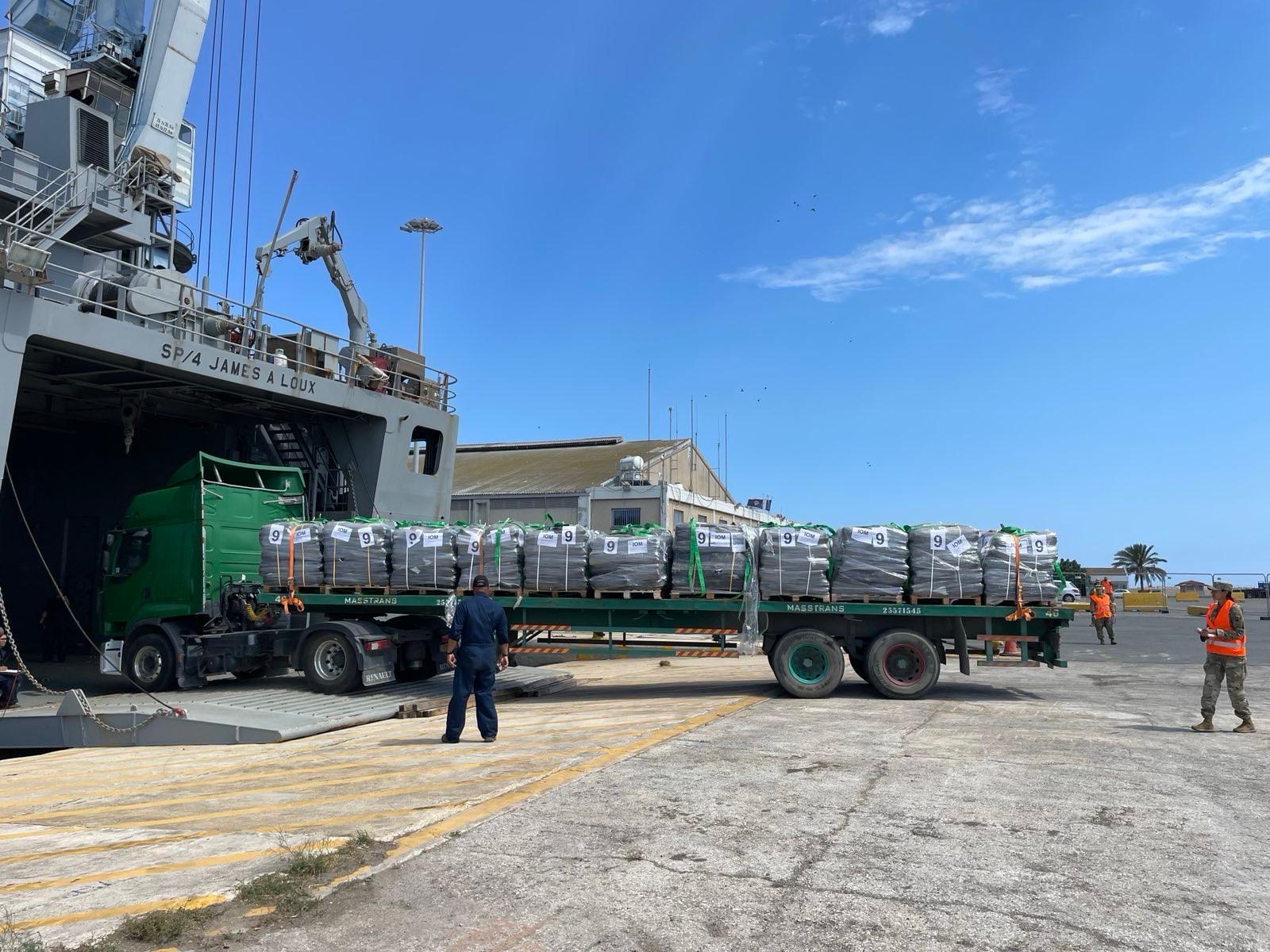The temporary jetty constructed off the coast of Gaza to facilitate the arrival of humanitarian aid via the sea from Cyprus has been towed away after a part of the structure broke off it during inclement weather.
Pentagon spokeswoman Sabrina Singh confirmed on Tuesday night that the jetty was being towed away from Gaza after sustaining damage due to “high sea states and the North African weather system”, which caused a section of the pier to break away over the weekend.
The jetty will be towed to the Israeli port of Ashdod, which is located north of Gaza, over the next 48 hours, where US Central Command will conduct repairs.
Singh said the repairs will take “at least over a week”, and that the jetty will be taken back to Gaza once they have been completed.
She also explained that four United States army vessels had been “affected by heavy sea states”, causing the motorised sections of the jetty to break free from their anchors.
This in turn caused the four vessels, which had been stabilising the pier, to “break free” from their anchors, with all four winding up beached up the coast near Ashkelon, an Israeli town located between Ashdod and Gaza.
She said one of the beached vessels has already been recovered, while the other three are expected to be recovered within the next 48 hours with the assistance of the Israeli navy.
With the jetty now out of action for over a week, Singh said the loading of humanitarian aid onto ships in Larnaca will continue so that when the jetty is back in position, aid can immediately begin flowing into Gaza once again.
In addition, she said the jetty had “proved highly valuable in delivering aid to the people of Gaza”, pointing out that over 1,000 tonnes of humanitarian aid have now been delivered into the marshalling area from the sea via the jetty.
However, this appraisal of the jetty was disputed by a total of 20 humanitarian aid agencies, who on Tuesday night released a joint statement describing the jetty’s creation as a “cosmetic change”.
Reacting to recent events in Gaza, including the bombing of a tent camp by Israel, they said, “the ability of aid groups and medical teams to respond has now all but crumbled, with temporary fixes such as a ‘floating jetty’ and new crossing points having little impact”.
They added that “systematic obstruction”, “intensified hostilities”, and “prolonged telecommunications blackouts” by the Israeli authorities have reduced the volume of aid entering Gaza to its lowest level in the last seven months.
“Announcements of additional crossing points and initiatives, including the new ‘floating jetty’, have given an illusion of improvement, but have largely amounted to cosmetic changes,” they said.
They also pointed out that just over 1,000 lorryloads of aid entered Gaza through all ports of entry in the three weeks between May 7 and May 27 – a figure they described as “alarmingly low” given the “skyrocketing humanitarian needs of Gaza’s 2.2 million people”.
Issues with the humanitarian aid corridor have hit closer to home for Cyprus, too, with former Larnaca port operator Kition Ocean Port, which had its contract with the government torn up on Monday, sending notices of dismissal to all its workers on Tuesday night.
The port is now operating under the direct administration of the ports authority and workers are carrying out their duties as usual, though, as trade union Ompegie-Sek leader Charalambos Avgousti explained, they are unable to use machinery owned by Kition.
He said this means works are being carried out “a little slower” than normal.
Despite the issues, government spokesman Konstantinos Letymbiotis said operations in Larnaca are “continuing as normal”.
Meanwhile, ports authority head Zenonas Apostolou told newspaper Phileleftheros on Wednesday that everything is going smoothly, and that the ports authority is cooperating with Kition for the seamless provision of services.
“Outstanding issues that exist are being handled by the company until they are completely resolved,” Apostolou said, noting that one of them is the Amalthea plan and specifically the service of a ship which was preparing to depart for Gaza.
Apostolou had said the ship, a private American vessel, had been expected to depart overnight, but this proved unfeasible following the damage to the jetty in Gaza.
The Amalthea plan had been handled handled by Kition, and when the ship leaves, the initiative will fall under the full control of the ports authority.
In addition, the ports authority’s existing staff in Larnaca has been reinforced by employees transferred from the Nicosia head office, as well as from the port of Limassol, and the director, is already instated at the port.
“[If] we see that [additional] reinforcement is needed, more personnel will be brought in,” Apostolou said.







Click here to change your cookie preferences